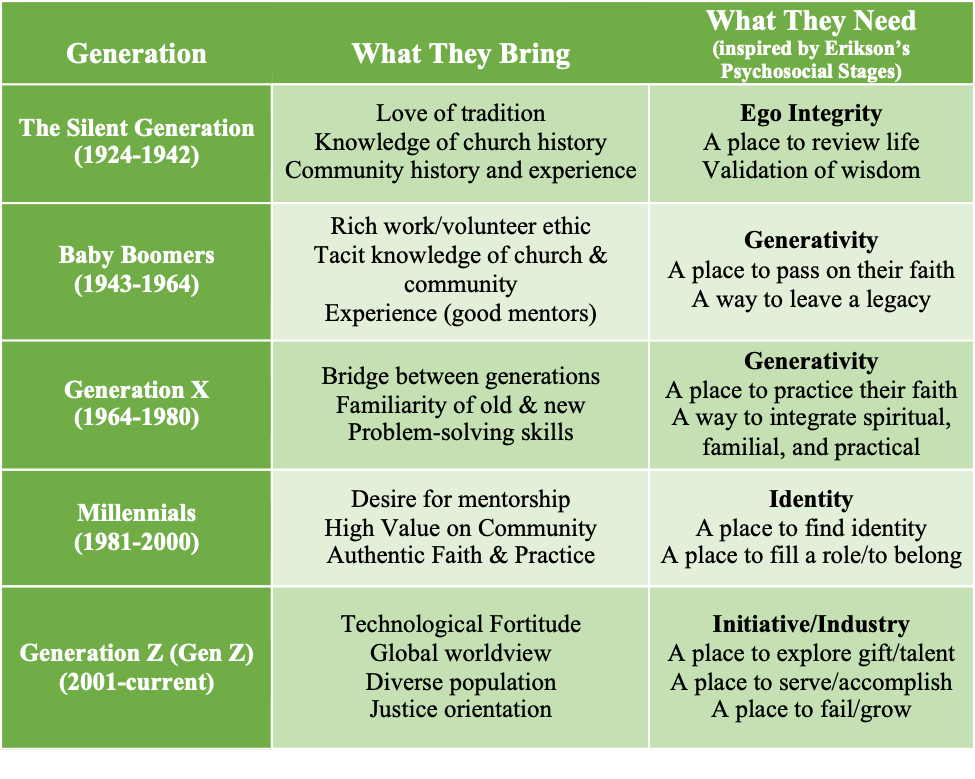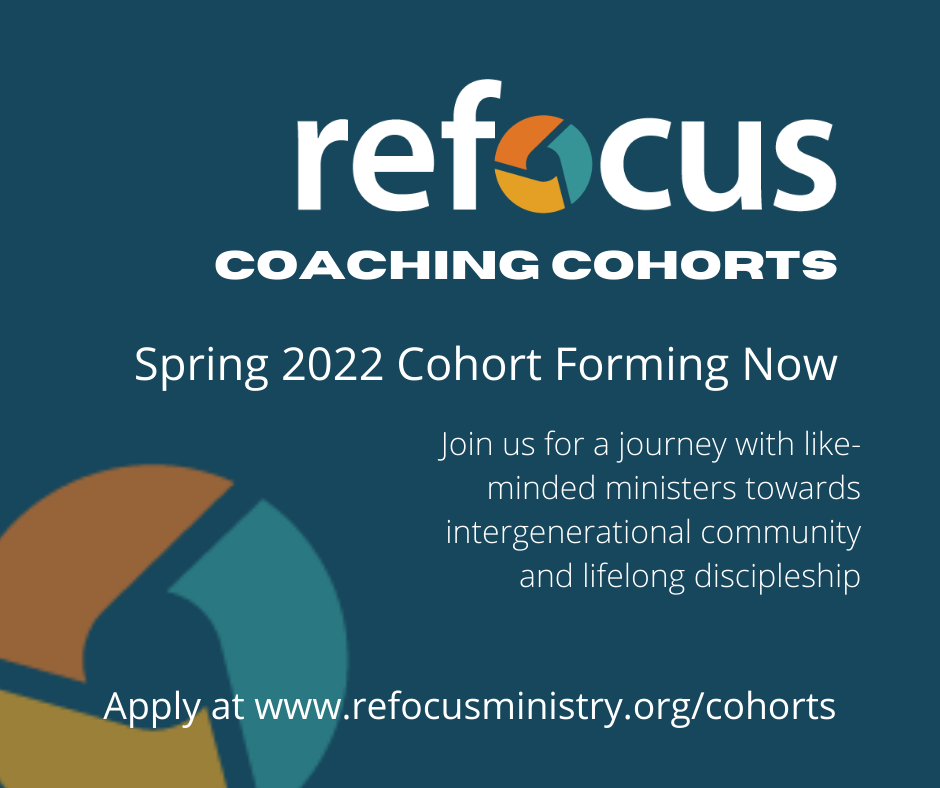What is intergenerational ministry?
Sometimes it is easier to describe what something is by exploring what it is not.
Many people associate this term with children’s ministry or family ministry within the church. While those ministries may be partners in intergenerational ministry, the scope of these ministries are not broad enough.
Intergenerational ministry encompasses the whole church, all generations, in a communal and corporate context; It is more of a cultural characteristic of a church than it is a ministry area, a culture that values and creates space for meaningful connections to be made across generational boundaries in a variety of settings for the purpose of generational discipleship, faith formation, and community building.
Intergenerational ministry is an intentional approach to ministry that both allows for and encourages interaction between multiple generations in such ways as corporate worship, relational mentorship and lifelong community.
In order for a church to recognize the need for this generational connectivity within their faith community, the following question must be answered: What does each generation need from the church and what can each generation contribute to the church? Let’s begin with the latter and the explore the former.
Generational theory, the grouping of individuals into particular social groups with a shared identity predicated on the year of their birth and life experiences, began in the early 20th century and gained steam in the mid to late 20th century as marketing firms began to explore how to best market to specific groups, coining nicknames for them in order to create a collective conscious. (Source)
Currently, the most likely generations that would be found in a given faith community would be the Silent Generation (born 1924-1942), Baby Boomers (1943-1964), Generation X (1965-1980), Millennials (1981-2000), Gen Z (2001-2010) and Alpha Generation (2011-present). These six generations offer unique experiences in both spiritual and communal practices for the church.
The older generations bring a wealth of faithful testimonies, historical worship practices, and community-sustaining disciplines. The middle generations offer a bridge between past experience and current ones through experience with a vast array of communication tools from rotary phones to high-speed internet conferencing and the latest social media trends. The youngest generations offer the heartbeat of current culture and the application of spiritual truths in a dynamic cultural environment.
Likewise, each generation brings its unique needs to the church.
This chart uses Erik Erikson’s theory of psychosocial stages to outline these needs in a church setting. The Alpha generation has been omitted at present as more research needs to be done on this emerging generation.

But you can see here, the older generations need to be needed; the desire for generativity and legacy-leaving are uniquely found in these generations and to be left isolated from those to whom their legacy can be left (the younger generations) is stifling and leads to stagnation.
The middle generations are those seeking intimacy in deeper relationships with others, such as mentorship and discipleship, but if those opportunities are found lacking, will retreat into a placed of isolation.
The youngest generations are looking for a placed to be industrious (an important part of the community) and find identity (a role to play in the community); thus faith communities need to be intentional not just with providing safe and fun environments like Kid’s Church and youth group but integral participatory environments that allow for identity and industry to be rooted in the church.
When we understand the needs of the individuals in our churches, we can begin to incorporate practices that allow for both needs to be met and gifts to be shared. The ultimate goal? Finding ways for our faith community to connect to one another in meaningful relationships for the purpose of all of us following Jesus better (discipleship).
And that is what intergenerational ministry is.
It’s not a program or a curriculum. It’s a culture defined by community engaged in discipleship and together on mission. And it is what we so desperately need in our churches today.
This article was originally published in full in Shalom! journal, Spring 2020, Vol 40.2
If you have ever felt alone in your heart for intergenerational ministry, if you have ever wondered what the next right step is or been curious about how you can best serve your church’s discipleship or mentorship ministry, then a ReFocus Ministry Coaching Cohort might the place for you.

ReFocus Coaching Cohorts provide ministry leaders with the opportunity to expand their leadership skills in a twelve-week shared learning experience. Facilitated by an experienced coach, a cohort group of 7-10 individuals from multiple faith organizations meet weekly to explore and apply the principles of leadership in generational discipleship, intergenerational ministry, and church culture transition. Through extensive exploration, inquiry and dialogue, the coach and fellow cohort members help participants identify their role in generational discipleship within their faith community and deepen their leadership capability.
Interested in learning more? Fill out the contact form below or visit us online at refocusministry.org/services/.


